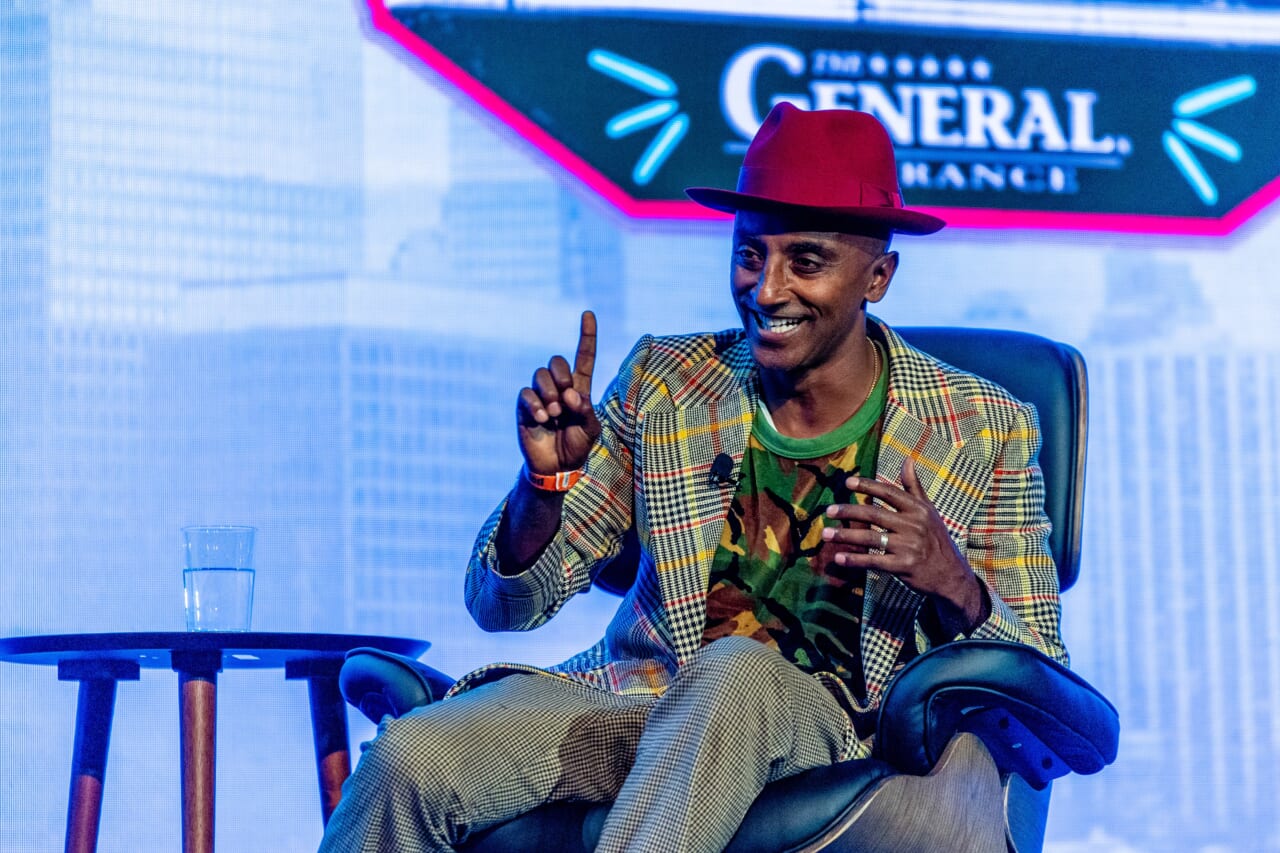We bring news that matters to your inbox, to help you stay informed and entertained.
Terms of Use and Privacy Policy Agreement
WELCOME TO THE FAMILY! Please check your email for confirmation from us.
“As a Black chef that has privileges and a platform, it’s very important to me that I’m setting the standard and creating jobs for other Black culinarians,” Samuelsson told The Associated Press.
NEW YORK (AP) — Marcus Samuelsson is keen on leading with intention. That focus is seared into the delectable dishes prepared at his popular restaurants, but it is also expressed with his staffing.
“My restaurants are a reflection of the society we’re living in. (At) Hav & Mar, we decided on Black leadership, female leadership, because there was a void for it. Red Rooster opened in Harlem because we wanted to create jobs within our industry for Black and brown individuals,” said Samuelsson, a multiple James Beard Award-winning chef. “I love food and I want to gear it towards … everybody, but the opportunities should also be a little bit more evenly distributed.”
To honor trailblazing restaurants founded by women and people of color, Samuelsson and fellow chef Jonathan Waxman host “Seat at the Table,” an eight-part Audible original series that premiered toward the end of last year. In the series, chefs, along with many involved in the inception of their restaurants, present an oral history of some of America’s most iconic eateries such as New York’s groundbreaking Jezebel, started by Albert Wright, Washington, DC’s Ben’s Chili Bowl, by the Ali Family, and The Slanted Door, created by Charles Phan in San Francisco. Food serves as the roux of the podcast, while the impact the establishments have had on their communities and adds the shrimp, sausage and potatoes.
“Coming out of Black History Month, going into Women’s (History) Month, I felt it was really necessary to share this, that we know our Black stories are not monolithic,” said Samuelsson, who was born in a hut in Ethiopia but raised in Sweden after his birth mother died during a tuberculosis epidemic in the early ’70s. “I always feel like when you enter a restaurant, you’re entering a piece of American history … that’s really what we want to capture in ‘Seat at the Table.’ It’s beyond the food — it’s really the people that make it so special.”
Samuelsson spoke with The Associated Press about his mission to elevate women and people of color, selecting restaurants for the podcast and diversity in the culinary world. Answers may have been edited for clarity and brevity.
AP: You’ve mentioned your goal is to elevate women and talented, diverse people. Why is that part of your mission?
SAMUELSSON: As a Black chef that has privileges and a platform, it’s very important to me that I’m setting the standard and creating jobs for other Black culinarians … One of the reasons why we always have open kitchens is the staff knows they’re on a stage but also so the customer can see who cooks and works for them in the dining room. Same thing with Hav & Mar where our mission is to uplift women of color in leadership.
AP: How did you choose the restaurants?
SAMUELSSON: I didn’t by myself. It was a constant back-and-forth with my partner in this, Jonathan Waxman. … He didn’t just read about these chefs, he came up with these chefs. But he knew these stories, and we would never gotten as close to these incredible stories without Jonathan’s work.
(Chef) Thomas Keller doesn’t do a lot of interviews, but he talked to Jonathan. And that’s why that story about The French Laundry is so unique. And Charles’ (Pham) story, that’s a story about the Vietnam War and how a true immigrant tale starts and how a restaurant maybe was not the way that they thought they would be in business, but it became a way of living for him and his family.
AP: What commonalities do you share with the chefs featured in the podcast?
SAMUELSSON: The desire that you want to share your narrative. … I share that piece with Charles, of course, being an immigrant, feeling the love for America is sometimes misunderstood also.
Leah Chase (of Dooky Chase) has always been my mentor and somebody I admire so much. But I feel, also, Alberta Wright and Jezebel — I was a kid growing up right across the street from Jezebel in Hell’s Kitchen in New York City. And I know if I wouldn’t have met Ms. Leah Chase, I wouldn’t have met Alberta Wright, I would’ve never created the Red Rooster or Have & Mar, my restaurant here in Manhattan. … I owe a lot to that generation of incredible Black women.
AP: How would you rate the culinary world when it comes to diversity?
SAMUELSSON: Food is part of society … so we’re improving. We got a ways to go. And part of doing this doc with Audible was to really acknowledge how much labor, how much incredible Black restaurants that were in America that never got acknowledged.
America’s history in terms of diversity is very complicated. But it’s heading — through a lot of work by effort, by a lot of people — in a better direction. I’m a firm believer in that, even if you (have to) to work at it every day, we’re heading towards a better experience as people. And it’s important because as diversity goes in America, the world is looking at America. So, it’s very, very important to get these small wins because the rest of the world is taking note. As a Black person growing up outside of America, I know this firsthand.
TheGrio is FREE on your TV via Apple TV, Amazon Fire, Roku, and Android TV. Please download theGrio mobile apps today!

